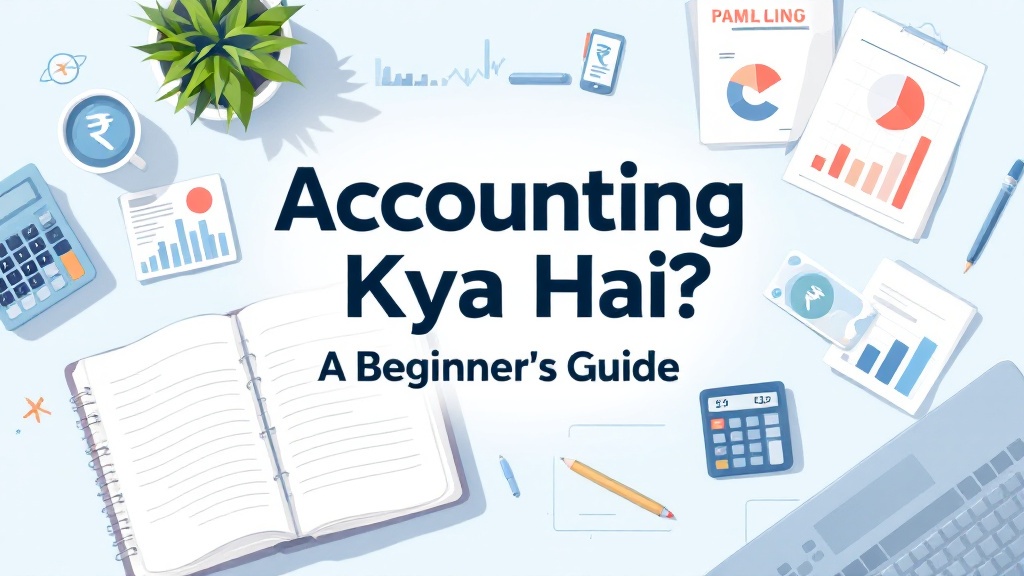Comprehensive List of CA Papers: A Complete Guide for Aspiring Chartered Accountants
[fusion_dropcap class="fusion-content-tb-dropcap"]B[/fusion_dropcap]ecoming a Chartered Accountant (CA) is one of the most prestigious and rewarding career paths in the financial sector. However, it requires a deep understanding of accounting principles, tax laws, and business practices. To successfully qualify as a CA, you must pass several exams set by the Institute of Chartered Accountants of India (ICAI). The CA exams are divided into three levels—Foundation, Intermediate, and Final—and each level consists of a series of papers. In this comprehensive guide, we will walk you through the entire list of CA papers, providing insights into the subjects covered, exam structure, and preparation tips.
1. Overview of the CA Exams
Before diving into the specifics of each paper, let’s first understand the structure of the CA exams. The CA course, governed by ICAI, is a rigorous, multi-year journey, divided into three stages:
- CA Foundation: The entry-level exam.
- CA Intermediate: The second level, which builds on the foundation and prepares students for the Final exams.
- CA Final: The final exam before becoming a certified Chartered Accountant.
Each of these stages includes a set of papers, and the content varies in terms of complexity and depth. The exams are held twice a year (in May and November), and students must clear each stage to progress to the next level.
2. CA Foundation Papers
The CA Foundation is the first step in the journey to becoming a Chartered Accountant. It is designed to assess a student’s basic knowledge of accounting and other core subjects. The exam consists of four papers:
2.1 Paper 1: Principles and Practice of Accounting
- Description: This paper covers fundamental accounting principles, including the preparation of financial statements, accounting standards, and accounting for various transactions.
- Key Topics:
- Accounting principles and concepts
- Preparation of financial statements
- Accounting for various business transactions
- Bank reconciliation statements
2.2 Paper 2: Business Laws, Ethics, and Communication
- Description: This paper covers the legal framework within which business operates, along with ethical practices and communication skills needed in the corporate world.
- Key Topics:
- Indian Contract Act
- Sale of Goods Act
- Companies Act
- Business ethics and communication
2.3 Paper 3: Business Mathematics, Logical Reasoning, and Statistics
- Description: This paper focuses on quantitative techniques required for business decisions.
- Key Topics:
- Basic arithmetic and algebra
- Permutation and combination
- Probability
- Statistics and data interpretation
2.4 Paper 4: Business Economics and Business and Commercial Knowledge
- Description: This paper provides an understanding of micro and macroeconomics and introduces students to the fundamentals of business and commercial knowledge.
- Key Topics:
- Microeconomics
- Macroeconomics
- Business environment and commercial knowledge
3. CA Intermediate Papers
The CA Intermediate level is more challenging and is intended to test your ability to apply accounting and financial principles in real-world situations. This level consists of two groups, each with four papers.
3.1 Group 1:
- Paper 1: Accounting
- Description: A more advanced understanding of accounting principles is required here, focusing on the preparation and presentation of financial statements.
- Key Topics:
- Accounting for partnerships and LLPs
- Accounting standards
- Financial statements of companies
- Paper 2: Corporate and Other Laws
- Description: This paper covers various business laws, including the Companies Act and other regulatory frameworks.
- Key Topics:
- The Companies Act, 2013
- Securities laws
- The Negotiable Instruments Act
- Paper 3: Cost and Management Accounting
- Description: Cost accounting helps students understand cost control and management in businesses.
- Key Topics:
- Cost concepts and methods
- Break-even analysis
- Budgeting and standard costing
- Paper 4: Taxation
- Description: This paper covers both direct and indirect taxes, including GST.
- Key Topics:
- Income tax
- GST (Goods and Services Tax)
- Customs laws and international taxation
3.2 Group 2:
- Paper 5: Advanced Accounting
- Description: This paper delves deeper into accounting for complex business transactions.
- Key Topics:
- Accounting for business combinations
- Consolidated financial statements
- Accounting for financial instruments
- Paper 6: Auditing and Assurance
- Description: This paper covers auditing techniques and practices, including the ethical and legal responsibilities of an auditor.
- Key Topics:
- Types of audits
- Audit planning and execution
- Internal control systems
- Paper 7: Enterprise Information Systems and Strategic Management
- Description: This paper focuses on information systems and strategic decision-making in business.
- Key Topics:
- Information systems for management
- Strategic planning and management
- Business process reengineering
- Paper 8: Financial Management and Economics for Finance
- Description: Financial management concepts, including investment and financing decisions, are the focus here.
- Key Topics:
- Capital budgeting
- Financial analysis and planning
- Working capital management
4. CA Final Papers
The CA Final level is the last hurdle to becoming a Chartered Accountant. This stage requires in-depth knowledge of accounting, taxation, and business laws, among other areas. The exam is divided into two groups, with four papers in each group.
4.1 Group 1:
- Paper 1: Financial Reporting
- Description: This paper covers advanced financial reporting, focusing on preparing and analyzing financial statements.
- Key Topics:
- International Financial Reporting Standards (IFRS)
- Business combinations and consolidations
- Accounting for financial instruments
- Paper 2: Strategic Financial Management
- Description: Students are required to apply financial management strategies to real-world scenarios.
- Key Topics:
- Risk management
- Investment analysis
- Corporate restructuring
- Paper 3: Advanced Auditing and Professional Ethics
- Description: A comprehensive study of advanced auditing techniques, professional ethics, and legal responsibilities.
- Key Topics:
- Audit methodology and techniques
- Professional ethics in auditing
- Corporate governance
- Paper 4: Corporate and Economic Laws
- Description: This paper focuses on corporate laws, economic regulations, and other legal aspects impacting businesses.
- Key Topics:
- Companies Act, 2013
- Economic laws
- Corporate governance
4.2 Group 2:
- Paper 5: Strategic Cost Management and Performance Evaluation
- Description: This paper teaches cost management techniques and how to evaluate the performance of a business.
- Key Topics:
- Cost control techniques
- Budgeting and variance analysis
- Performance management systems
- Paper 6: Management Accounting – Financial Analysis and Planning
- Description: A deeper dive into management accounting, focusing on financial analysis for strategic decision-making.
- Key Topics:
- Ratio analysis
- Working capital management
- Financial planning
- Paper 7: Direct Tax Laws and International Taxation
- Description: This paper focuses on income tax laws, including international taxation and transfer pricing.
- Key Topics:
- Income tax laws and regulations
- International tax treaties
- Transfer pricing
- Paper 8: Indirect Tax Laws
- Description: This paper covers the complex world of indirect taxes, particularly GST and customs duties.
- Key Topics:
- GST (Goods and Services Tax)
- Customs law
- Tax planning strategies
5. How to Prepare for CA Exams
Preparation for the CA exams is a long and challenging process. However, with a structured approach, it is possible to clear each level with flying colors. Here are a few tips:
- Understand the syllabus: Familiarize yourself with the syllabus for each paper. This will help you plan your study schedule efficiently.
- Create a study plan: Break down your preparation into manageable chunks, focusing on one paper or subject at a time.
- Regular practice: Practice solving previous year’s question papers and take mock exams to gauge your progress.
- Stay updated: Keep up with the latest changes in tax laws and accounting standards, as these are frequently updated.
6. Conclusion
Becoming a Chartered Accountant requires hard work, dedication, and a thorough understanding of various accounting principles and legal frameworks. The CA papers at each level are designed to challenge you and prepare you for a successful career in finance. By breaking down the syllabus, following a structured study plan, and practicing regularly, you can successfully navigate the CA exams and embark on your journey toward becoming a Chartered Accountant.
If you’re aspiring to take the CA exams, keep these papers and tips in mind as you prepare for your future in the world of finance.
Visit Our Website : Accounting24.in









